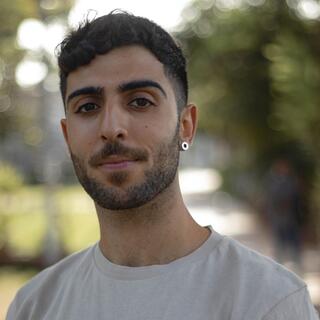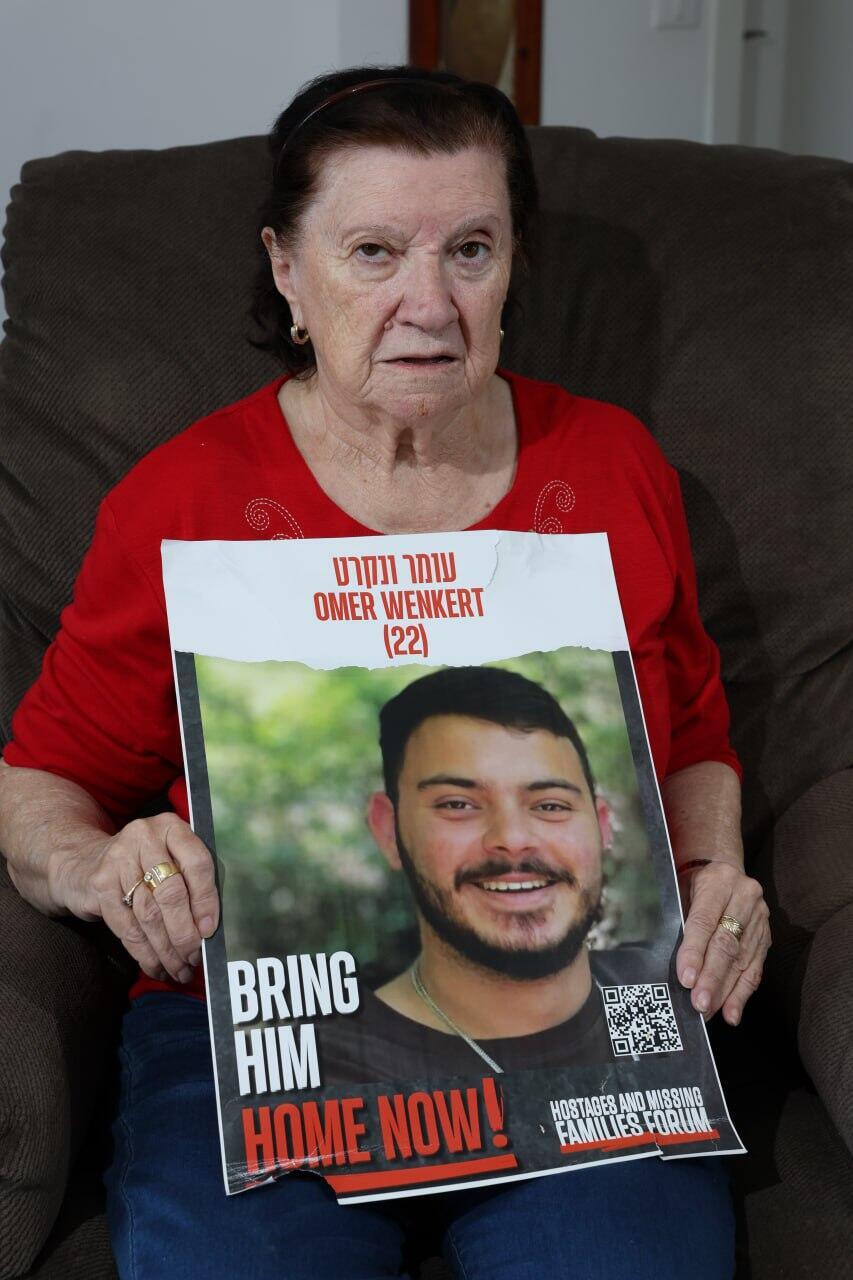Getting your Trinity Audio player ready...
Tzili was just six weeks old when the Nazis deported her family to a ghetto. Eighty years later, her grandson, former hostage Omer Wenkert, was 22 years old when he was abducted from a shelter in Re’im on October 7, 2023, by Hamas terrorists.
Despite the decades between their traumas, Tzili says the recent ordeal was worse: “I may be a Holocaust survivor,” she often repeats, “but my real Holocaust was when they kidnapped Omer.”
For the 17 months Omer was held hostage, Tzili, now 83, never stopped fighting. She gave interviews, joined protests and clung to a single prayer: that her grandson would come home.
Born in 1941 in Chernivtsi — now in Ukraine, near the Romanian border — Tzili was deported with her family to the Transnistria ghetto as an infant. “We traveled part of the way by train and walked the rest,” she recalled. “Six of us lived in a tiny room for three and a half years. My parents sold everything — clothes, dishes, jewelry — just to survive.”
She describes how death was everywhere in the ghetto. “People died from hunger, disease, cold, shelling. They were sent to forced labor,” she said. “My mother made me clothes from her own, even shoes from my grandfather’s hat.”
Though she was a toddler, Tzili says vivid memories remain. “I still see myself standing in the doorway, looking at the three straw mattresses. That image comes back to me all the time.”
After the war, her family moved to Romania. She studied, worked and got married before making aliyah to Israel in 1965. “I didn’t want my children growing up as immigrants. This is our country,” she said.
Omer Wenkert returning home from hospital
(Video: Tomer Shonam Halevi)
Decades later, on October 7, her eldest grandson, Omer — “a gift from the heavens” — was abducted by Hamas. “When he came back, you couldn’t recognize him. He was so thin,” she said.
Get the Ynetnews app on your smartphone: Google Play: https://bit.ly/4eJ37pE | Apple App Store: https://bit.ly/3ZL7iNv
“When I hugged him in the hospital, it felt like I had a new grandson. It was like hugging him as a newborn. You could see his bones through his shirt. I told myself, ‘Where there are bones, there will be flesh.’ And now, he’s already doing better. He knows how to smile, how to laugh. He’s not withdrawn — he’s meeting people and friends again.”
Still, she described the months of his absence as a kind of limbo. “We had no holidays, no birthdays. You can’t celebrate when your sadness is that deep. It’s like someone stabbed you, didn’t kill you but you still have to walk around with the knife inside.”
Tzili admires the strength her grandson showed during captivity. “When I got to the hospital, a doctor asked if I was a Holocaust survivor. I said yes. He told me, ‘Omer’s like you — he’s strong.’”
“Maybe it runs in the family,” she mused. “But I was a baby — everyone protected me. He went through something far worse. He’s fully aware. They beat him, isolated him, starved him. But he didn’t break. He doesn’t complain. For him, it was like a test of strength.”
Still, she adds, “From experience, something always stays. I see he’s trying — he’s meeting people, smiling. He shares some things but not everything. I think he doesn’t want to burden me.”
Now, she says, Israel must bring back the remaining hostages in Gaza. “Two months have passed since Omer came home — no Phase two, no Phase three, nothing,” she said. “We need to get them out, whatever the cost. Even if it means ending the war. And the dead deserve to be buried in Israel too. I hope Omer’s return wasn’t the last train out.”
She also expressed deep concern over rising antisemitism since Hamas’ attack. “I see how much antisemitism has grown in the world. I’m very worried. I don’t want my grandchildren going through anything like this. Yes, we have a country now — but I don’t see it doing very much.”
This week, Tzili is traveling to Auschwitz before joining a Holocaust Remembrance Day ceremony at Kibbutz Yad Mordechai. The event will highlight the connection between past trauma and the current Israeli reality.
Organizers and representatives from the kibbutz said in a statement: “This evening is not just about remembrance. It’s a powerful declaration of the human spirit’s ability to believe, create and resist — even after the greatest darkness and even after the suffering of the past year and a half.”








